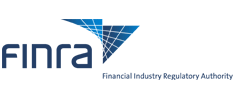
Nancy Condon (202) 728-8379
Herb Perone (202) 728-8464
Citigroup Pays $1.5 Million for Supervisory Failures Related to Elaborate Scheme to Misappropriate Millions in Trust Funds Belonging to Cemeteries Located in Michigan and Tennessee
WASHINGTON — The Financial Industry Regulatory Authority (FINRA) announced today that it has imposed a monetary sanction of $1.5 million against Citigroup Global Markets Inc. for supervisory violations relating to its handling of trust funds belonging to cemeteries in Michigan and Tennessee. The sanction represents a $750,000 fine and disgorgement of $750,000 in commissions, which is being returned to the cemetery trusts as partial restitution.
"Firms have a duty to protect customer funds by taking prompt and meaningful action when they encounter indications of possible fraud or misappropriation," said James S. Shorris, FINRA Executive Vice President and Executive Director of Enforcement. "That duty is particularly critical when firms handle trust funds where the beneficiaries may be unsophisticated investors who are unaware of how the funds are being handled."
Citigroup consented to findings that, from September 2004 through October 2006, Citigroup broker Mark Singer and two of his customers were involved in a scheme to misappropriate an amount alleged in various legal actions to be over $60 million in cemetery trust funds. One of Singer's customers, Clayton Smart, is currently facing criminal charges arising from the scheme in Tennessee and in Michigan. Singer's criminal trial in Tennessee recently ended in a mistrial. He still faces criminal charges in Indiana. Smart and the second customer, Craig Bush, have been named in civil litigation arising from the scheme.
Singer's two customers, Smart and Bush, were successive owners of a group of Michigan cemeteries from which funds were believed to be stolen. In August 2004, Smart purchased the cemeteries from Bush using trust funds that had been improperly transferred from the Michigan cemeteries themselves to a company that Smart owned. Soon afterwards, Smart used additional trust funds to buy cemeteries and funeral homes in Tennessee.
FINRA found that a Citigroup branch manager had recruited Singer from another broker-dealer, where the scheme originated. When Singer began working for Citigroup in September 2004, he brought nearly all of his customer accounts with him, including the cemetery trust accounts and other accounts belonging to Bush. Singer assisted Bush and Smart in opening numerous Citigroup accounts in their own names, as well as in the names of corporate entities they owned or controlled. Singer helped Bush and Smart deposit cemetery trust funds into some of these accounts and then effect improper transfers to third parties, sometimes using conduit accounts to mask the transactions. Some of the fund transfers were disguised as fictitious investments made on behalf of the cemeteries.
FINRA's investigation showed that over a period of more than two years, Citigroup failed to reasonably supervise the handling of these accounts by inadequately responding to a succession of "red flags" – failures that permitted the scheme to continue undetected until October 2006.
The red flag events began in September 2004, shortly after Singer began working at Citigroup. Singer's previous employing broker-dealer warned Citigroup about irregular movement of funds involving accounts connected to the Michigan cemetery trusts – activity that occurred before Bush moved his accounts to Citigroup and while Bush was still owner of the Michigan cemeteries. After receipt of this information, however, FINRA found that Citigroup's follow-up of the activity in Bush's accounts was superficial and incomplete.
By November 2004, Citigroup's management became aware of rapid movement of funds involving Citigroup accounts associated with Bush and Smart – including unusual transfers of cemetery trust funds to accounts opened in the names of third parties – but failed to conduct an adequate inquiry into the matter. In February 2005, Citigroup received information indicating possible misrepresentations by Smart regarding his acquisition of hedge fund investments belonging to the Michigan cemetery trusts, which Smart used as collateral for a personal $24 million line of credit from Citigroup Private Bank. Again, Citigroup failed to conduct an adequate inquiry.
Finally, in May 2006, Citigroup received a whistleblower letter – from the principal of a company acting as a third-party trustee for the cemeteries – alleging misconduct by Singer in connection with the handling of the cemetery trusts. Among other things, this letter alleged Singer's involvement with unauthorized transfers of cemetery trust funds, as well as Singer's use of his personal email address to conduct business with the whistleblower, in an apparent attempt to bypass the firm's email monitoring system. Despite the seriousness of these allegations, Citigroup failed to enhance supervision of Singer or restrict his activities.
In settling these matters, Citigroup neither admitted nor denied the charges, but consented to the entry of FINRA's findings.
Investors can obtain more information about, and the disciplinary record of, any FINRA-registered broker or brokerage firm by using FINRA's BrokerCheck. FINRA makes BrokerCheck available at no charge. In 2009, members of the public used this service to conduct 18.5 million reviews of broker or firm records. Investors can access BrokerCheck at www.finra.org/brokercheck or by calling (800) 289-9999.
FINRA is the largest non-governmental regulator for all securities firms doing business in the United States. FINRA is dedicated to investor protection and market integrity through effective and efficient regulation and complementary compliance and technology-based services. FINRA touches virtually every aspect of the securities business – from registering and educating all industry participants to examining securities firms, writing and enforcing rules and the federal securities laws, informing and educating the investing public, providing trade reporting and other industry utilities, and administering the largest dispute resolution forum for investors and registered firms. For more information, please visit www.finra.org.
